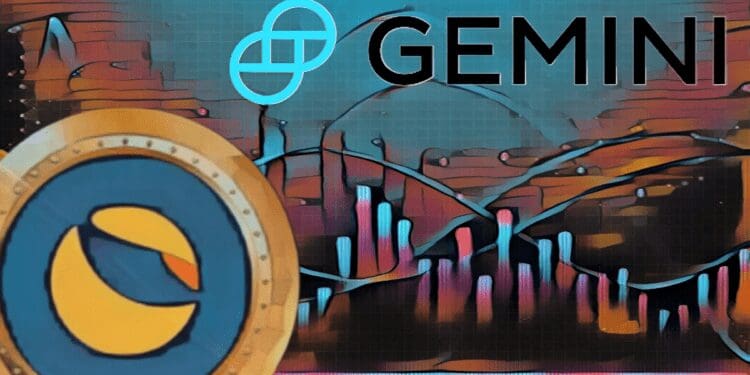In a significant move that reflects the ongoing reshaping of the cryptocurrency market, Gemini, one of the leading crypto exchanges, has announced its decision to delist Terra Luna Classic (LUNC) along with three other altcoins: Synthetix (SNX), Qredo (QRDO), and Zebec (ZBC). This decision is part of a broader strategic review by the exchange as it continues to refine its asset offerings.
Gemini’s Strategic Asset Review: A Closer Look at the Delisting Decision
According to an internal communication obtained by sources familiar with the matter, Gemini has decided to remove Terra Luna Classic (LUNC) from its trading platform. The exchange’s decision comes after a comprehensive review of its listed digital assets, where it assessed various factors such as market performance, user engagement, and the evolving regulatory landscape.
In addition to LUNC, Gemini has also announced the delisting of Synthetix (SNX), Qredo (QRDO), and Zebec (ZBC), with all trading activities for these cryptocurrencies set to cease by September 30. Users holding these assets have been advised to withdraw their holdings to external wallets before the deadline to avoid any disruption.
A spokesperson from Gemini commented on the move, stating, “Our periodic asset reviews are designed to ensure that the assets listed on our platform meet the high standards of quality and security that our users expect. This decision is a reflection of our commitment to providing a safe and robust trading environment.”

Market Reactions and Community Sentiments
The announcement has sparked a flurry of reactions within the cryptocurrency community. Terra Luna Classic (LUNC), in particular, has been a subject of intense debate. Some community members have expressed concerns over the impact of the delisting on LUNC’s liquidity and market presence. However, others argue that the move could be an opportunity for the asset to consolidate its value on other platforms.
Interestingly, the price of LUNC has shown a modest 2% increase despite the looming delisting, reflecting a broader recovery trend in the cryptocurrency market. Over the last 24 hours, LUNC’s trading volume surged by 45%, indicating increased activity among traders possibly seeking to capitalize on short-term market movements. The price fluctuation suggests that while the delisting news has created uncertainty, the overall market sentiment remains cautiously optimistic.
Impact on Terra Luna Classic and Future Outlook
The delisting of Terra Luna Classic from a major exchange like Gemini could have far-reaching implications for the asset and its community. Historically, delistings can lead to reduced liquidity, lower trading volumes, and a decline in market confidence. However, the ongoing developments within the Terra ecosystem, such as the reopening of the Shuttle Bridge for the redemption of wrapped assets, could help mitigate some of these negative impacts.
Moreover, the broader market recovery and the increasing development activity within the Terra Classic community might provide a counterbalance to the potential downside caused by the delisting. As the cryptocurrency landscape continues to evolve, the resilience of Terra Luna Classic will be tested, and its future trajectory will depend heavily on how its community and developers navigate these challenges.
In parallel, the USTC (TerraClassicUSD) price has shown signs of strength, climbing to $0.0163, bolstered by the ongoing USTC repeg narrative. This has generated a renewed interest in Terra-related assets, although USTC faces resistance at the $0.0165 mark. The futures market has also seen a 1% uptick in open interest, indicating that traders are closely watching these developments.
As the September 30 deadline approaches, the crypto community will be keenly observing how these delistings unfold and what it means for the affected assets, particularly Terra Luna Classic. The decisions made in the coming weeks will likely shape the future of these digital currencies and their place in the broader crypto ecosystem.













Discussion about this post